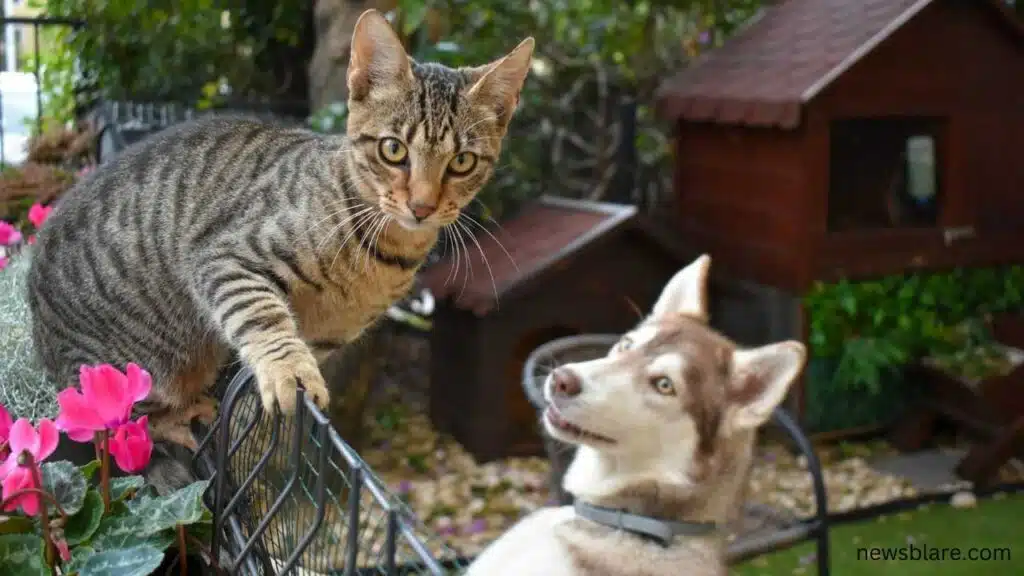As a proud pet owner, you may want to give your cat or dog the best care in the world. But no matter how many vet follow-ups you do or what type of high-quality food that you feed them, there’s still a chance that your pet may be stressed in some situations.
At these times, it’s essential that you keep a good head on your shoulders and observe these signs closely. This way, you can get your pets to the vet without unwanted delay and administer the help that they need urgently.
To explain this important subject further, here are 10 signs your pet may be stressed and how you can help them.
1. Shedding
In case your pet is shedding excessively, it can be a sign of stressed. Even when you follow a guide to purebred cats or dogs to the last detail, you can still face this issue. To help your pets, you can ask your vet about recommendations for calmness exercises and practices.
2. Fleas
Flea infestations are no joke. Besides making your pet irritable, they can also lead to problems like anemia. This can also lead your furry friend to experience stress. With solutions like Nexgard chewable tablets for pets, you can find an easy resolution to this unfortunate but common problem for cats and dogs.
3. Loss of Appetite
Many pet owners use a cat or dog food delivery service, but their pets may still refuse to eat. While loss of appetite can occur due to a variety of reasons, it can sometimes happen due to stress. After consulting with your vet, you can determine how to solve the underlying issue that is causing your pets to turn away from food.
4. Change in Bathroom Habits
Cats are particularly great at keeping their bathroom habits in check, while trained dogs are also good at maintaining the standards set by their owners. If your cat or dog is urinating or defecating on your home’s floor, it might be a sign of stress and needs a vet’s attention.
5. Aggressiveness
Stressed cats and dogs can sometimes become aggressive towards their human family. If you use a pet sitting or dog walking service, you can ask your pet’s caretaker to report back to you about aggressive behaviors. You can then discuss the issue with your vet to see if there’s an underlying problem that’s causing the behavior.

6. Avoidance
While learning to be a responsible pet owner, one of the first things that you stumble upon is how avoidance in cats and dogs is an indicator of bigger issues. This also includes stress. If your pet is avoiding you or not playing with other pets, it might be time for a vet visit.
7. Hiding
Many pets, especially cats, are prone to hiding whenever they are stressed. While this behavior is common, it can be harmful to their well-being when it becomes all too frequent. Similar to using an essential oil diffuser for your own health, you can get specific medications from your vet to help your pet feel calmer at home.
8. Tense Body
When cats and dogs become stressed, they often tense up. This shows up in the form of a stiff posture and a hunched-up body. In many cases, your cat or dog may also keep their tail close to their body. If you notice these signs lasting for more than a day, you may want to contact the vet.
9. Lip Licking
Whenever cats and dogs have food, they lick their lips for a cute confirmation of a delicious meal. But if they continue doing this out of meal times, it indicates stress. Whether you learn about Norwegian forest cat or labrador puppy care tips, you may see that excessive lip licking calls for veterinary attention.
10. Digestive Issues
It’s also common for cats and dogs to have digestive issues that stem from stress. In cats, it’s common to vomit because of this. In dogs, it’s also possible to have diarrhea due to this reason. To make sure that you can investigate the root cause, you need to reach out to your vet.
Once you learn about these signs of stress in pets, you can observe your cat and dog more closely for any problematic symptoms. This can ensure that you take care of their well-being and don’t let anything fly under the radar.
Read Also: Understanding the Risks: Is Pest Control Safe for Pets?
